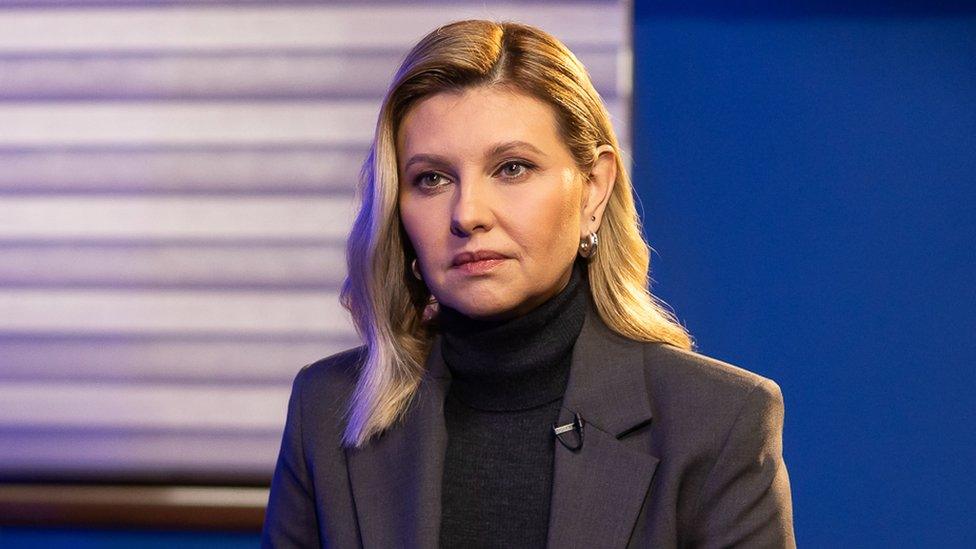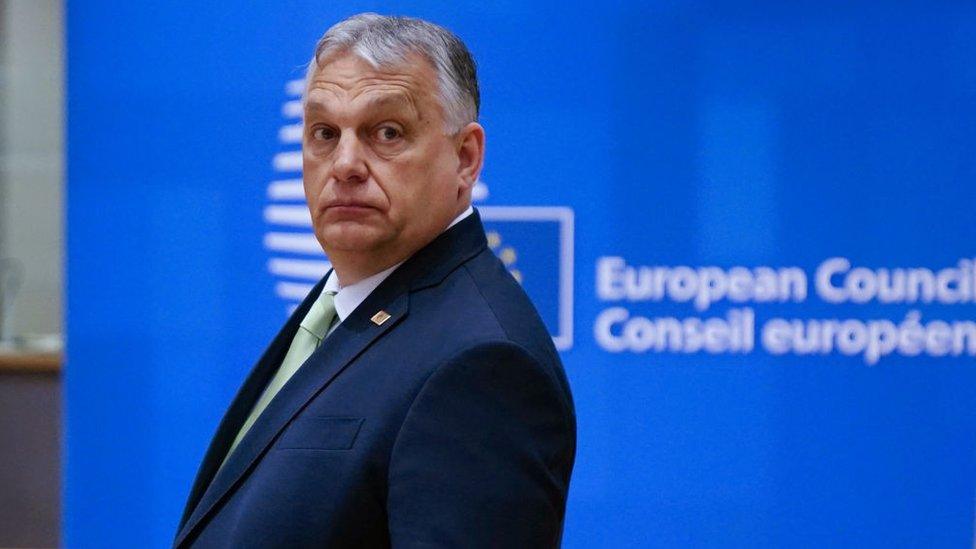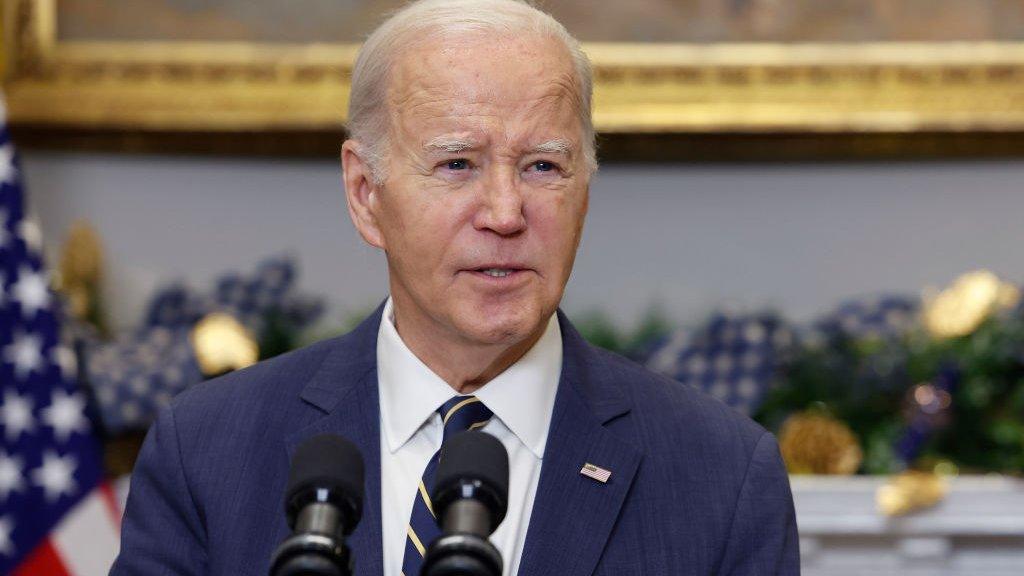Ukraine war: Zelensky makes plea for US aid ahead of Biden meeting
- Published
Watch: "We hope we can count on you," Zelensky says to US
Ukrainian President Volodymyr Zelensky issued an impassioned appeal for continued US military aid as he arrived in Washington on Monday.
Addressing military officials, he said Ukraine is not fighting just for its own freedom but for global democracy.
His comments come as an aid package worth billions languishes in Congress amid a partisan political row.
Rebuking Republicans, who are blocking the aid, Mr Zelensky called the delay a "dream come true" for Vladimir Putin.
"If there's anyone inspired by unresolved issues on Capitol Hill, it's just Putin and his sick clique," the Ukrainian leader argued.
Mr Zelensky is expected to make similar remarks in a meeting with President Joe Biden at the White House on Tuesday. He will also meet House Speaker Mike Johnson, a noted sceptic of additional military aid.
The visit marks Mr Zelensky's third trip to the US since Russia's 2022 invasion, and the White House said in a statement on Sunday that his visit was meant "to underscore the United States' unshakeable commitment to supporting the people of Ukraine as they defend themselves against Russia's brutal invasion".
The US military aid package, worth $60bn (£47.9bn; €55bn), is currently stalled in Congress, facing pushback from Republicans who argue that more money should be going to domestic security at the US-Mexico border.
A vote in the Senate last week saw a package, which included the funding but no border measures, blocked by Republicans.
Watch: How US lawmakers are divided on Ukraine funding
In addition to more funds for border enforcement, Republicans are seeking reforms to the way in which undocumented migrants seeking political asylum in the US are processed.
"Quite frankly, we're not going to go help other countries and not look at actually what's happening in the United States," Republican Senator James Lankford of Oklahoma, told an NBC reporter on Monday.
Mr Lankford said that Americans don't want US national security on the border to be ignored while Congress focuses on Ukraine's interests.
He added that he doubted Mr Zelensky's visit will change any lawmakers' minds.
Although the Biden administration has expressed a willingness to accept some asylum policy changes, such concessions risk angering liberal lawmakers and further dividing a party that has already been fractured by the president's support of Israel in the Gaza War.
"We are concerned about reports of harmful changes to our asylum system that will potentially deny lifesaving humanitarian protection for vulnerable people, including children, and fail to deliver any meaningful improvement to the situation at the border," a group of 11 Democratic senators wrote in a statement issued on 30 November.
Democratic Senator Chris Murphy of Connecticut, an ally of Mr Biden's, has said that the White House is becoming "more engaged" in the ongoing negotiations, seeking a comprehensive funding agreement that includes money for Ukraine before Congress leaves for its holiday recess on Friday.
Even if the Senate can strike a deal, however, the package would have to also be approved by the House of Representatives, where opposition to more Ukraine aid is even more intense.
Mr Biden has been urging lawmakers to approve the funds. In an impassioned televised address last Wednesday, he said the package could not wait and warned that Russia would not stop at victory over Ukraine.
Though Ukraine fended off Russia's original attack, its much-vaunted counter-attack this year has stalled and there have been signs of fatigue from some of the Western nations which have stepped up to support it militarily.
Nonetheless, Mr Zelensky insisted on Monday that his troops could still overrun Russian forces if US military aid continued.
"American Bradleys, HIMARS, 155-caliber shells and ATACMS missiles, Patriots, and F-16s can get the job done in Europe, exactly how global freedom needs it," he said. "The whole world is watching us, observing what destiny other free nations could face - to live freely or to be subjugated. Ukrainians haven't given up and won't give up."
The week is a crucial one for Ukraine, with the EU also deciding whether to open accession talks to the bloc.
Hungarian Prime Minister Viktor Orban has signalled that he opposes the move, and has the power to block such a decision.
Mr Orban and Mr Zelensky had an apparently intense conversation when they met on Sunday at the inauguration of Argentina's new president. The details of their discussion have not been revealed.
Watch: Zelensky has animated chat with Orban this week in Argentina

Sign up for our morning newsletter and get BBC News in your inbox.

- Published10 December 2023

- Published9 December 2023

- Published21 April 2023

- Published7 December 2023
